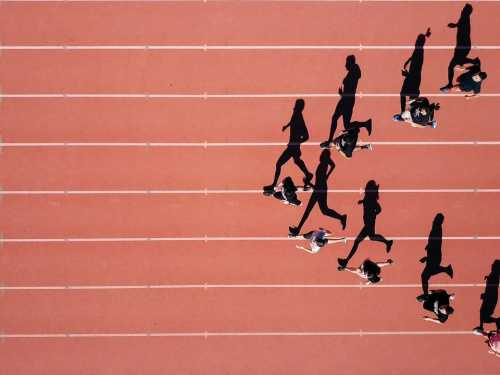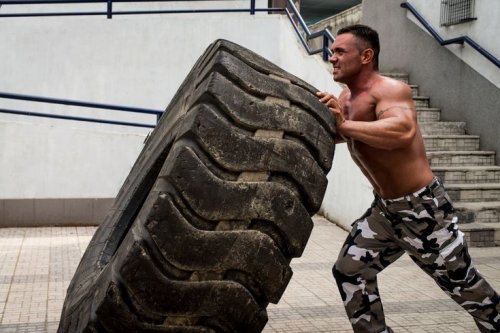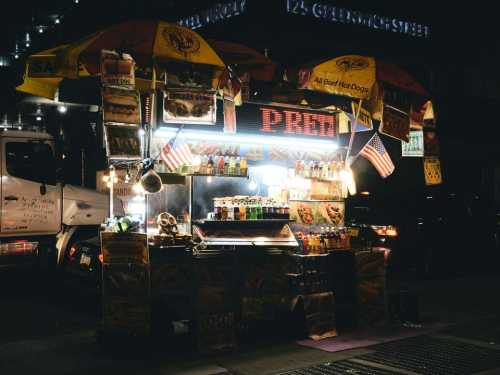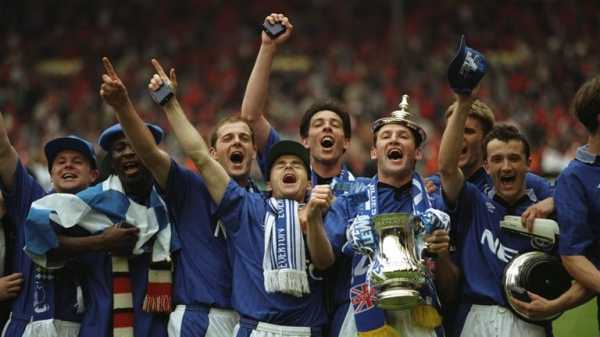
21:45 Everton’s famous 1995 FA Cup win over Manchester United, revisited on its 25th anniversary by two men who made it possible, Paul Rideout and Graham Stuart.
“Until the semi-final, I wouldn’t say we weren’t interested, but it certainly wasn’t a major thing on our mind. When I got to the club the previous November, we were bottom of the table with just eight points from a third of the season. We were on schedule for 24 points unless there was an improvement, and thankfully there was.
“The players took on board what we wanted and we ended up with 50 points, but I was more scared of us getting an injury or a sending off as we didn’t have that big a squad. The FA Cup was very much second on my mind until we beat Tottenham in the semi-finals.”
Everton secured their top-flight status with five days of the season remaining – a 1-0 win at Ipswich – while Manchester United missed out on retaining the Premier League title on the final day after only managing to draw 1-1 at West Ham as Blackburn were crowned champions.
The team selection
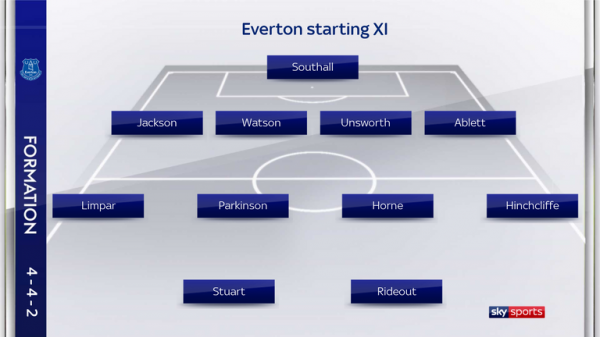
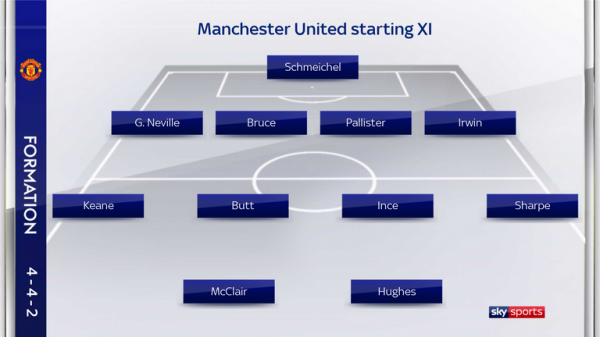
Royle: “Managers and staff watch a lot of opposition videos nowadays but we all knew about United. We knew they were a top side having finished runners-up in the league to Blackburn. We actually frightened the life out of them when they beat us 2-1 on their way to the title and they still don’t know how. We were no easy meat, and you could see that from the sides we beat to get to the final.
“We’d already beaten Manchester United in the home game at Goodison Park, we’d beaten Newcastle in the sixth round, we’d beaten Spurs in the semi-final.
“Overall, we beat three Premier League sides to get to the final and when we got to Wembley to train before the game, we knew what we wanted and we knew what we were going to do – just the one thing that had to be sorted out was telling them the team.
“Unfortunately for John Ebbrell – who’d played in most of the games to get us to that position but hadn’t played in the semi-final – I had the terrible task of telling John he couldn’t play. I had to go with the semi-final team and I knew the side we were going to play, it was just a matter of the system.
“But I had a good chat with the staff and decided 4-4-2 had got us there so we went with it. But the attitude at the hotel beforehand… we played header tennis, the lads were very relaxed. It only really got serious about an hour before kick-off. The team talk was quite simple – ‘we’ve got this far so come on then, we might as well win it.'”
The road to Wembley

Royle: “Quite often, you can get a soft draw, but we had the four Premier League sides and the biggest fright we had was at Bristol City.
“We only conceded one goal during the entire run and that was a penalty that never was against Spurs. That was the main thing about the team… we had the three midfield players [Joe Parkinson, Barry Horne, John Ebbrell], so we tightened up an awful lot.
Everton’s route to the final
Third Round: Derby (H) Won 1-0 (Hinchcliffe)
Fourth Round: Bristol City (A) Won 1-0 (Jackson)
Fifth Round: Norwich (H) Won 5-0 (Limpar, Parkinson, Rideout, Ferguson, Stuart)
Sixth Round: Newcastle (H) Won 1-0 (Watson)
Semi-final: Tottenham (N) Won 4-1 (Jackson, Stuart, Amokachi 2)
“We were underdogs, but our hardest game and the one we looked most like losing was at Bristol City. I remember saying I hope we hadn’t used up all our luck in one match after that.
“We had a bit of an illness in the squad and one player couldn’t wait to get to the dressing room at half-time, and we had one or two injuries, so Bristol City must still be wondering how they didn’t beat us that day.
“The pitch was awful… it was a bog. In the end, the oddities of what cup football throws up, Matt Jackson scored with a left-foot half volley. I’ve never seen him hit a left-foot half volley before or since. Matt was a decidedly right-footed right back and he swung his leg at it and it was a great strike. It was a cup anomaly really.”
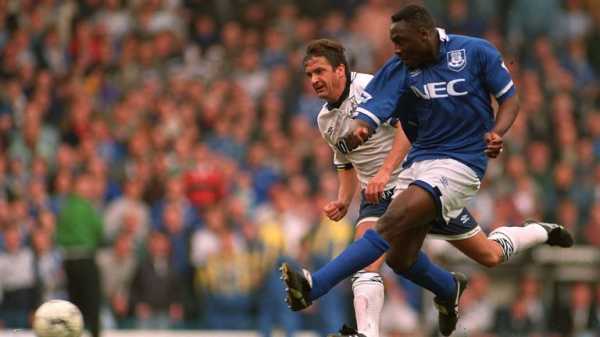
Graham Stuart: “The Tottenham performance was the best I’ve ever been involved in as a professional footballer. When you look at the magnitude of the game and with it being a semi-final of the FA Cup. You’ve got so much to gain and so much to lose in the space of 90 minutes.
“For us to rock up to Elland Road and to see our fans dominate the outside of the stadium and for us to then go out and dominate 90 minutes was monumental, really. We never looked like losing the game, we were so dominant and so confident. We had a good attitude and we weren’t cocky but we had a little bit of arrogance about us in the sense that we just felt like we weren’t going to lose the game.
“To then carry that onto Wembley and the icing on the cake was beating Man United in the final. It was a special time but the performance in the semi-final was far better than it was in the final.”
Paul Rideout: “I injured my ACL so they were looking at it and assessing it at the time… Daniel [Amokachi] had made his way onto the field somehow, but in actual fact he did me a favour because I had damaged it and was struggling to make the final so in a way it was a blessing. When he came on, he produced two great goals and made the difference.”
Royle: “I’ve watched a lot of Everton, thinking back to the Bayern Munich game [3-1 win in the semi-final second leg of the European Cup Winners’ Cup in 1985], and I’ve been involved in big games as a player, and that performance at Elland Road was fantastic. It was hard to see on the day who was the best player – it was that complete and we were so good all over the pitch.
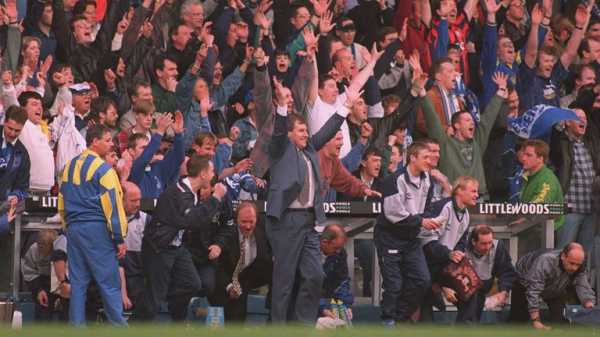
“When your sub comes on and scores twice, you know you’ve got something going for you. It was the best substitution I’ve never made! I had a code with Les Helm, who was a great football physio who wasn’t keen on all the earplugs and microphones, so we had a code. He’d go on if there was an injury, he’d raise an arm to say, ‘wait and see’, he’d raise a thumb if he was going to be fine, or he’d cut his throat with his finger to say ‘he’s finished!’ It was that simple.
“Rideout had gone down on the far side of the pitch and Les raised his hand and said he thought he was going to be OK if you give it a minute. He went off for treatment, so I just Daniel to get warmed up in case. The next thing I knew, Danny substituted himself! I was running up the touchline saying, ‘no, not yet’ – it wasn’t that I didn’t want Danny on the pitch, it’s just that Rideout and Stuart as a pair were running riot. They were a great pair together, there’s no doubt.”
The perfect partnership
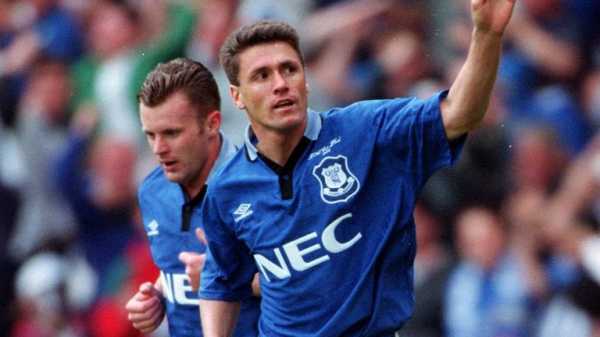
Stuart: “In terms of football-wise, Paul was a great technician. He could back into people. You look at somebody like Alan Shearer who was probably the best there was at it alongside Mark Hughes, Paul was really good at it as well. He’d back into people, his technique was excellent, his first touch was very good and he had an awareness of how to bring people into the game.
“I could be in and around Paul knowing that he’d be the focal point of attacks and I could pick up little bits and pieces off him.”
Rideout: “Graham always read things really quickly – he understood the game so well and he anticipated things. The goal I should’ve scored in the semi-final, he was already onto the rebound reading it. A major part of how we worked was the fact that everyone was connected.
“Willie Donachie came in and did a fabulous job, and all we did was work as a group. We had a midfield who would do anything for you. It was a good group and you trusted that everyone would do their job. We had special players like Anders Limpar who could change a game for you, so overall it was a well-connected group.”

Royle: “Stuart was terrific and one of the unsung heroes of the whole season. Terry Venables [the England manager] had asked about him. He never believes me, but Terry had mentioned him to me for England at the time, he was playing so well, along with Joe Parkinson and David Unsworth, who got one cap.
“Parky had terrible knee problems which would’ve stopped him playing for England. He was the perfect holding midfield player, who could take the ball, pass the ball, very quick for his size, almost a centre-half but decidedly a holding midfield player. He was terrific that year.”
“Technically, Paul was as good as any striker that was around. He gave us a great season, and Stuart rose above being a utility player to being one of the first names on the sheet.
“When Duncan [Ferguson] was fit, he had to play because he had that dynamic x-factor about him and nobody liked playing against Duncan, but as a pair, the movement between those two was terrific. Duncan wasn’t it for the semis, but he was fit for the final and came on.”
The Dogs of War
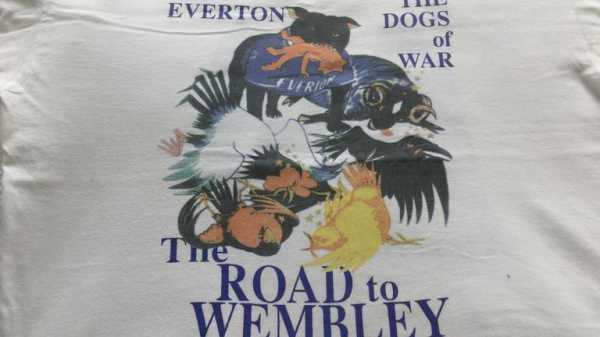

Royle: “A reporter asked me one day why Vinny Samways wasn’t playing, who’d been suspended when I got there, and I said we’d just won three games in a row with the team. Quite honestly, I saw no reason to change it as we were playing in an aggressive way and that gave birth to the Dogs of War mentality. The next thing, there’s Dogs of War t-shirts, there’s all kinds of things. They’re worth a few quid now.”
Stuart: “I was alright with the Dogs of War label because I wasn’t one of the dogs, but I don’t know about John Ebbrell, Barry Horne and Joe Parkinson!
“But in all fairness to Joe, it was a bit of a flyaway comment that the press picked up upon – and it’s no disrespect in any way, shape or form – in fact it’s a compliment because every side needs the right balance.
“We had some very good talented players and we had a good workman-like group of players in those three. If a piece of paper flew across the pitch, they’d tackle it, and that’s the kind of mentality we had.
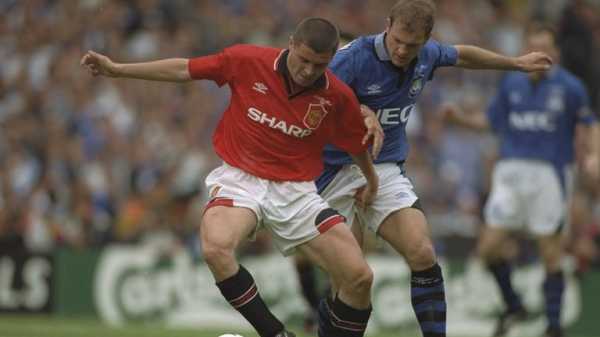
“They were so much better than that and they were very good at their jobs. They wouldn’t let any midfield settle. We came up against a midfield of Paul Ince and Nicky Butt and they never let those lads settle at any time. They were a vital cog in our wheel.
“It wasn’t just about me and Paul as we were well-drilled as a unit. The training we went about on a daily basis was such that everybody knew their individual job so as soon as the opposition goalkeeper had the ball in his hands, me or Paul – whoever was nearest – was at them.
“It’s great when you’ve got a midfield who you know are going to back you up and you’re not going to see that the midfield are 20 yards away, you know the work in closing them down isn’t going to be a waste of time. That’s the way we were drilled.”
On to Wembley…
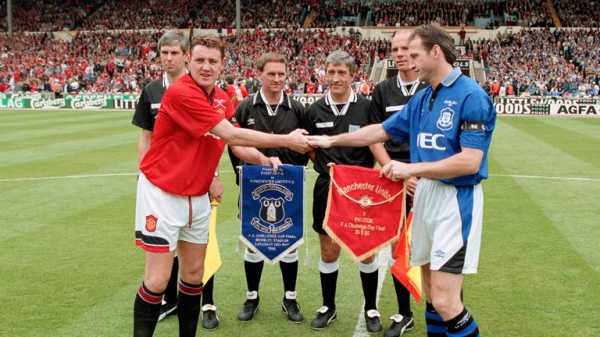
Rideout: “I’d only ever previously been to Wembley to play as a schoolboy. I remember watching Southampton win the FA Cup [in 1976] and I felt we were in the same situation with Everton playing against Man United. When I came away from watching that game, I thought ‘that’s where I want to be’.
“You don’t get too many opportunities to do it, and when we played against Tottenham, we were relaxed because the pressure wasn’t on us. Having Man United just lose the league, this was their last chance to win silverware so the pressure was on them.
“I just enjoyed the whole day – there was never any nervousness that you would usually associate with a game like that. I just felt good about the day and obviously winning make you remember everything about it, but to a certain extent the survival of Everton in the league was more important to us. Once we did that, it was a big relaxing moment to go to Wembley just to enjoy.”
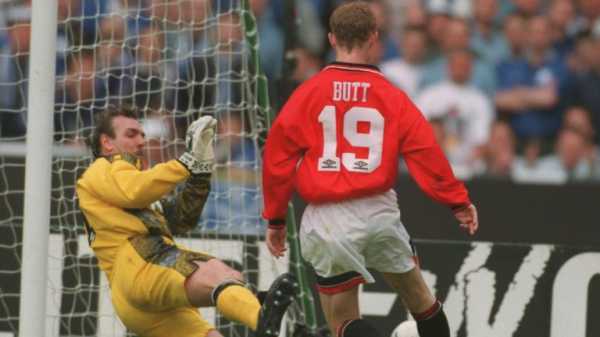
Stuart: “We went down to London a couple of days before the final. Big Joe just wanted the atmosphere to be relaxed. We were in the hotel and ticked along with a little bit of training. We were as fit as we were going to be anyway, so it was more a case of keeping loose and enjoying each other’s company. We turned up at Wembley knowing we were the underdogs, but we didn’t feel in our dressing room.
“We knew that if we gave out a good performance, then we would be close to winning the game. We were quietly confident about ourselves and that’s what we did on the day. We went out and gave it our best shot. Perhaps we caught Man United on a slightly underperforming day.
“You’re never going to play Man United and dominate for 90 minutes… they’re too good a side and there’s too many talented players. But when we needed the Neville Southalls and Dave Watsons and the Barry Hornes, they stood up for us.
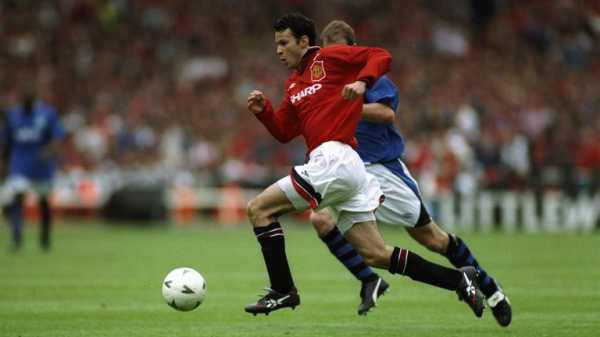
“Paul gets the credit, and rightly so for his goal, and the attacking players usually get the credit, but I think ultimately when we needed them, our back four was absolutely outstanding in that last half an hour at the game at Wembley.”
Royle: “Late on, Neville had a bit to do but I thought there was nothing in it during the first half. Alex [Ferguson] in one of his books later referred to it as a very ordinary final played by two ordinary teams which I thought was a bit harsh on us, but he’s my mate so I’m not going to say anything more than that.
“I thought we were good on the day… it wasn’t the glossy, flowing performance of the semi-final, but it certainly was a good performance against a top side. Duncan had two great chances when he came on so it could’ve been more in the end although Neville made a couple of important saves.”
The winner
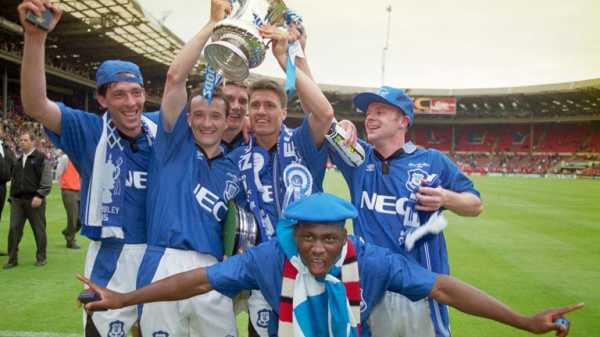
Rideout: “The goal was in slow motion. The build-up was from a deep position, and we were real quick. Anders went with the ball up the field and Matt Jackson made a great over-lap. He played the ball in and I heard a shout from Graham from behind me in a lot of space, so I dummied the ball, and went back in to pick up the pieces. Thankfully, it didn’t go in and dropped nicely for me.
“At that particular time, when it came back off the crossbar, it seemed a long time because it just bounced up and was sitting there in the air. You just take a chance of putting everything into it, and hope that it goes in.
“The sad part about it – and I always think about this – is the celebration afterwards, no knowing what to do. It was a pretty sad celebration, I’ve got to admit [Rideout held his arms aloft and blew a kiss to the crowd]. But when you score at Wembley, it’s a special place.
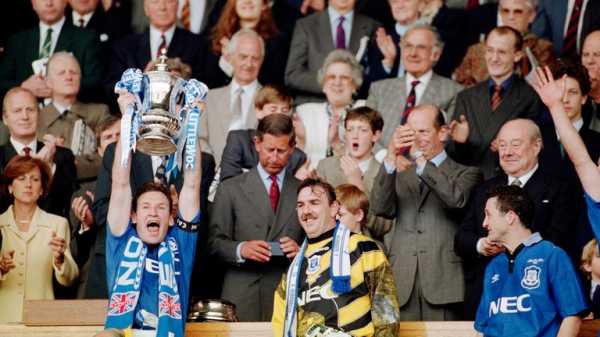
“To score the winning goal, and to score it against Man United is even more special because they were a special team. It’s a great memory for me, I have lived off it for 25 years and it’s all thanks to Graham!
“That said, winning the FA Cup now compared to where it was, it’s totally different. It was such a big event then. It’s still big, but it’s nowhere near what it was, which is a bit of a sad thing.”
The after-party
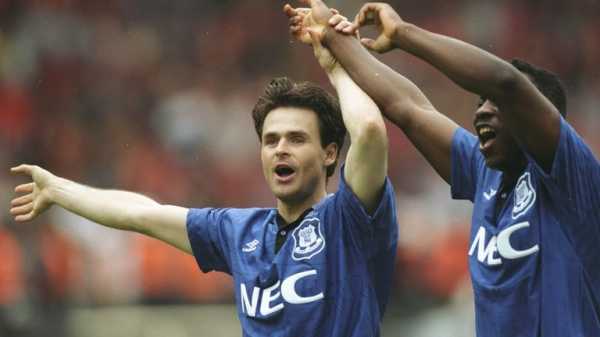
Royle: “The team knew how to celebrate. Duncan was a great party leader when it came to celebrations, and he loved it. They all did, and even Anders Limpar bless him who didn’t drink… he had a drink that night. He was quite poorly the next day. He had a great final and was in great form.”
Stuart: “I can remember the celebrations that night up to about 10 o’clock and then it’s all just a blur. The one thing that stands out for me was that it wasn’t so much the celebrations on the night but the next morning.
“We were up at 10.30am the next day to go back up to Merseyside for the open-top bus parade. A crate of Labatts beer was opened on the way up and the rest is history!
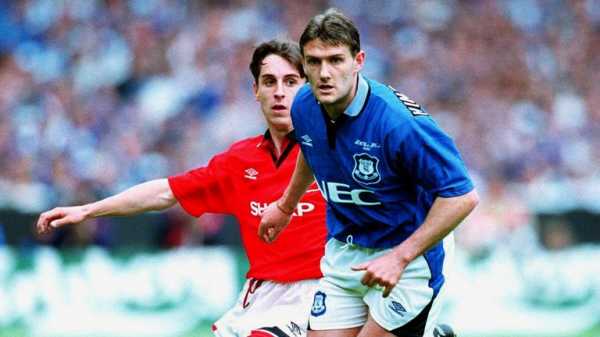
“The FA Cup was paraded around Burger King on the M6 somewhere, it was great as the spirit we had at the time – we were as good on the park as we were off it. We were in the Royal Lancaster hotel on the Saturday night, and all our families were invited to the evening do.
“My two sisters were with me, and I’ll never forget it. There was a bit of a kerfuffle in the corner of the hotel and everybody surrounded this table to the sight of Duncan Ferguson in his kilt, lifting it up to the tune that was going on with the DJ at the time.
“I was searching for my two sisters, and where did I find them? Right at the front of the queue in front of Duncan Ferguson. They were quickly marched back to my table…”
What happened next?
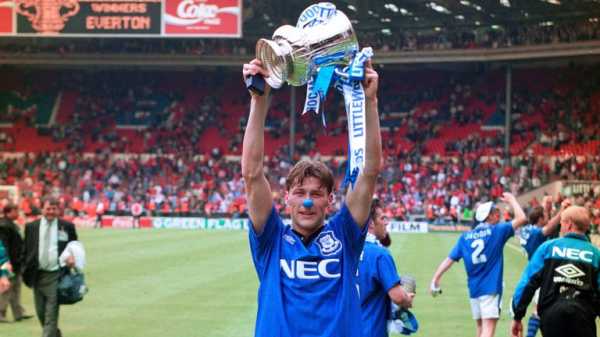
Everton lifted the Charity Shield courtesy of a 1-0 win over Blackburn at the start of the following season but they were knocked out of the second round of the European Cup Winners’ Cup by Feyenoord having beaten KR Reykjavik in round one. They finished the Premier League season in sixth place after a shock fourth-round exit in the FA Cup to Port Vale…
Rideout: “We did well following season finishing sixth in the league, compared to where we were the season before but we didn’t have the money we have now to follow that through. They did invest quite heavily in signing Andrei Kanchelskis and a couple of others, but it wasn’t enough to keep it going.
“After that season, for me, I was on my way out anyway, but I was expecting them to push on after finishing sixth. Sadly, it didn’t happen. It’s tragic that we haven’t won anything in 25 years. Time has flown by, but you still remember the day vividly and it was a great day.
“You look at Everton now and the money they’ve spent and the squads that they’ve had… we had a good squad, but it wasn’t a deep squad. I’ve been looking over the years thinking we’ve been getting stronger and stronger and yet we still haven’t won anything. It’s just mystifying for me.”
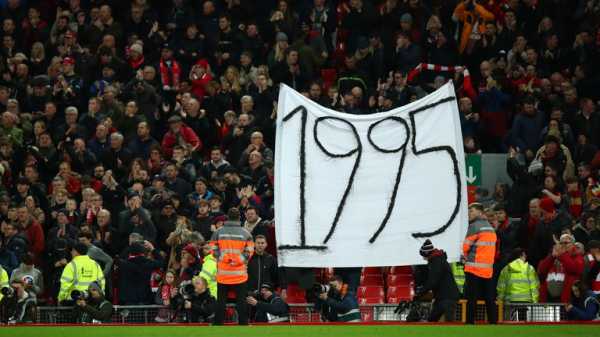
Stuart: “What we’ve got at Everton now is a set of really good lads with a great attitude and a great desire but maybe just not the know-how to get over the line.
“Paul talks about us in 1995 having quite a shallow squad, but within that squad we had a good set of players that had a really strong mentality, a huge desire to win, a great working attitude and a sprinkling of magic dust as well.”
Royle: “I’m astounded it’s been 25 years without a trophy, but a lot of the team I had were under-rated.
“Dave Watson came back from everybody telling me he was finished, Neville was supposed to be finished, a young Dave Unsworth came on and got his first cap and so all round we were very close, believe me. Recruitment is key.”
Sourse: skysports.com
